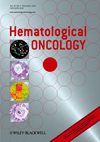
HEMATOLOGICAL ONCOLOGY
Scope & Guideline
Fostering Excellence in Cancer Research and Treatment
Introduction
Aims and Scopes
- Hematologic Malignancies Research:
The journal extensively covers research related to various hematologic cancers, including leukemia, lymphoma, and myeloma, emphasizing both basic and clinical research. - Immunotherapy Innovations:
A significant focus is placed on novel immunotherapeutic strategies, such as CAR-T cell therapy, immune checkpoint inhibitors, and their applications in hematologic malignancies. - Translational Research:
The journal promotes studies that bridge laboratory findings with clinical applications, facilitating the development of new treatment protocols and understanding disease mechanisms. - Biomarker Discovery and Genomics:
Research on genetic mutations, epigenetic changes, and biomarker identification for prognostic and therapeutic purposes is a core area of interest. - Microenvironment and Tumor Biology:
Studies investigating the tumor microenvironment, including immune cell interactions and metabolic pathways, are highlighted to elucidate their roles in cancer progression and therapy resistance.
Trending and Emerging
- CAR-T Cell and Other Cellular Therapies:
The rise of CAR-T cell therapy and other cell-based treatments is a major focus, highlighting their potential as transformative therapies for hematologic malignancies. - Personalized Medicine and Targeted Therapies:
There is an increasing trend toward personalized treatment approaches, utilizing genomic profiling and biomarker analysis to tailor therapies to individual patient needs. - Microbiome and Immunotherapy Interactions:
Research exploring the role of the gut microbiome in modulating responses to immunotherapy is gaining traction, indicating a novel area of investigation that could enhance treatment efficacy. - Epigenetics and Cancer Progression:
Emerging studies focusing on the role of epigenetic modifications in cancer progression and therapeutic resistance are increasingly prevalent, reflecting a shift towards understanding the molecular underpinnings of hematologic malignancies. - Artificial Intelligence in Oncology:
The application of artificial intelligence for diagnostics, treatment planning, and patient management is becoming more prominent, showcasing the integration of technology into clinical oncology.
Declining or Waning
- Traditional Chemotherapy Approaches:
Research focusing solely on conventional chemotherapy regimens appears to be declining, as the field shifts towards targeted therapies and immunotherapies, which are perceived as more effective. - Single-Agent Therapies:
There is a noticeable reduction in studies solely evaluating the efficacy of single-agent therapies, as combination therapies are increasingly favored for their improved outcomes in treating complex malignancies. - Basic Science Without Clinical Application:
The journal has seen a decline in basic science research that does not connect to clinical applications, as there is a growing emphasis on translational studies that can lead to immediate therapeutic implications.
Similar Journals

Cancer Cell International
Elevating the Standards of Cancer ResearchCancer Cell International, published by BMC, is a transformative open-access journal established in 2001, dedicated to advancing the field of oncology and cancer research. With its ISSN number not specified and an E-ISSN of 1475-2867, the journal proudly operates from the United Kingdom, located at CAMPUS, 4 Crinan St, London N1 9XW, England. Renowned for its rigorous peer-review process, Cancer Cell International has made significant strides, securing a Q2 ranking in Cancer Research and Q1 rankings in both Genetics and Oncology as of 2023. It ranks impressively in Scopus, featuring in the top quintile of Genetics (#37/347) and Oncology (#52/404), indicating its importance within the scientific community. The journal's broad scope caters to a diverse array of topics within cancer biology, making it an invaluable resource for researchers, professionals, and students seeking to stay at the forefront of cancer science. With a commitment to disseminating high-quality research, Cancer Cell International invites scholars to explore innovative findings and contribute to the collective effort of combating cancer.

Journal of Hematology & Oncology
Unlocking Innovations in Blood Disorders and Cancer ResearchJournal of Hematology & Oncology, published by BMC, is a leading open-access journal dedicated to the dynamic fields of hematology and oncology, with a continuous publication record since 2008. Based in the United Kingdom, this prestigious journal provides a platform for groundbreaking research, encompassing topics that span cancer research, hematological disorders, and molecular biology. With a remarkable Q1 ranking in multiple categories including Cancer Research, Hematology, Molecular Biology, and Oncology for 2023, it stands as a significant contributor to the scientific community. The journal's rigorous peer-review process ensures the dissemination of high-quality studies that drive advancements in these critical areas of medicine, boasting an impressive Scopus rank in the top echelons of its fields. As an open-access publication, it promotes widespread accessibility and sharing of knowledge, making it an indispensable resource for researchers, clinicians, and students striving to make advancements in understanding and treating hematological and oncological diseases.

CELLULAR ONCOLOGY
Transforming Oncological Research Through CollaborationCELLULAR ONCOLOGY is an esteemed open access journal published by SPRINGER since 2004, specializing in the dynamic field of oncological research. With its ISSN 2211-3428 and E-ISSN 2211-3436, this journal plays a pivotal role in disseminating cutting-edge findings and innovative methodologies that address cancer at the cellular level. The journal has consistently achieved high-impact recognition, currently holding a Q2 rating in Cancer Research and Q1 rankings in Medicine (miscellaneous), Molecular Medicine, and Oncology as of 2023. Furthermore, it ranks 56th in oncology medicine and 48th in cancer research according to Scopus, placing it firmly within the top echelons of its field. Published in the Netherlands, with an aim to connect scientists, clinicians, and practitioners worldwide, CELLULAR ONCOLOGY fosters a collaborative environment for researchers to share insights, enhance understanding, and advance treatments. The journal’s open access model ensures that ground-breaking research is freely available, facilitating greater visibility and impact within the scientific community and beyond.
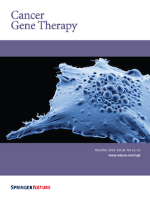
CANCER GENE THERAPY
Unleashing the Power of Molecular Medicine in OncologyCancer Gene Therapy, published by SpringerNature, stands at the forefront of research in the fields of cancer research, molecular biology, and molecular medicine. With a robust impact factor reflecting its significant influence—ranking in the Q2 category for cancer research and Q1 for both molecular biology and molecular medicine—it serves as an essential resource for scholars and practitioners alike. Since its inception in 1994, the journal has dedicated itself to advancing the understanding and therapeutic application of genetic innovations in oncology. Notably, it holds distinguished Scopus ranks, placing it among the top tier journals in its categories, underscoring its importance to the scientific community. While open access options are not available, the compelling research published here offers invaluable insights into the latest advancements and strategies in cancer therapy. Engaging with *Cancer Gene Therapy* not only keeps professionals informed but also inspires future innovations in the quest for effective cancer treatments.

Experimental Hematology & Oncology
Illuminating Pathways in Blood Disorders and Cancer TreatmentExperimental Hematology & Oncology is a premier journal published by BMC, dedicated to advancing knowledge in the fields of hematology, oncology, and cancer research. Since its inception in 2012, this Open Access journal has emerged as a vital resource for researchers and healthcare professionals, fostering the dissemination of high-quality research that enhances our understanding of blood disorders and malignancies. With impressive rankings in Quarters 1 of key categories including Cancer Research, Hematology, and Oncology, it holds significant prestige, evidenced by its Scopus rankings: #42/404 in Medicine (Oncology) and #17/137 in Medicine (Hematology). The journal aims to publish cutting-edge studies, reviews, and perspectives that contribute to the evolution of therapeutic strategies and innovative treatment modalities. Researchers and practitioners alike will find this journal indispensable for staying at the forefront of breakthroughs in hematological and oncological research.
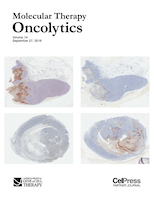
Molecular Therapy Oncolytics
Exploring the Frontiers of Molecular Medicine in OncologyMolecular Therapy Oncolytics is an esteemed Open Access journal published by CELL PRESS, focusing on cutting-edge research in the fields of oncology, molecular medicine, and pharmacology. Established in 2014, the journal has quickly gained a prominent position in the academic community, reflected in its impressive Q1 and Q2 rankings across various categories including Cancer Research, Molecular Medicine, and Pharmacology. With an impactful presence in the UK and a strong international readership, it aims to disseminate significant advancements in therapeutic strategies targeted at cancer treatment and management. By providing a platform for peer-reviewed research, Molecular Therapy Oncolytics plays a critical role in bridging the gap between scientific innovation and clinical application, making it an invaluable resource for researchers, healthcare professionals, and students striving to contribute to the evolving landscape of oncology.
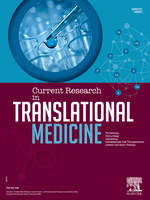
Current Research in Translational Medicine
Catalyzing Change in the Landscape of Translational MedicineCurrent Research in Translational Medicine, published by ELSEVIER FRANCE-EDITIONS SCIENTIFIQUES MEDICALES ELSEVIER, is a dynamic open-access journal that has been at the forefront of innovative research since its inception in 2016. With a strong commitment to advancing the fields of biochemistry, hematology, infectious diseases, oncology, and transplantation, the journal provides an invaluable platform for researchers and practitioners to share novel findings that bridge laboratory discoveries and clinical applications. Currently recognized in prestigious categories such as Q1 and Q2 quartiles, this journal emphasizes the importance of translational science in improving health outcomes, supported by a rigorous editorial process and a commitment to high-quality research dissemination. Being listed in reputable databases like Scopus, it enables authors to reach a wide audience, ensuring that their impactful work contributes to the global dialogue on critical medical advancements. With its open access model, Current Research in Translational Medicine encourages widespread collaboration and engagement among the scientific community, solidifying its role as a leading journal in medicine and related fields.
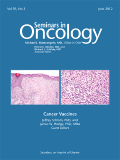
SEMINARS IN ONCOLOGY
Elevating Oncology Through Peer-Reviewed ExcellenceSEMINARS IN ONCOLOGY is a premier journal in the field of oncology, published by W B Saunders Co-Elsevier Inc. With its ISSN 0093-7754 and E-ISSN 1532-8708, this esteemed publication has been contributing significantly to cancer research and education since its inception in 1974. The journal currently holds a distinguished position in the academic landscape, ranking in the Q1 category for Hematology and Q2 for Oncology, and featured prominently in Scopus rankings—34th out of 137 in Medicine Hematology, and 108th out of 404 in Medicine Oncology. SEMINARS IN ONCOLOGY aims to disseminate cutting-edge research, critical reviews, and innovative treatment approaches, making it an invaluable resource for researchers, healthcare professionals, and students dedicated to the fight against cancer. Although not an Open Access journal, it maintains a commitment to high-quality, peer-reviewed content, further solidifying its role as a vital reference point in oncological studies. The journal serves as a crucial platform for the exchange of knowledge, insights, and advancements that shape the future of cancer care.
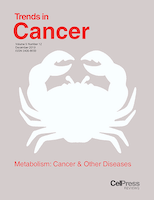
Trends in Cancer
Uncovering Breakthroughs in Cancer Biology and TherapyTrends in Cancer is a leading journal published by CELL PRESS, dedicated to advancing the field of cancer research and oncology. Since its inception in 2015, the journal has rapidly gained a reputation for excellence, securing both Q1 rankings in Cancer Research and Oncology categories for 2023 and boasting impressive Scopus ranks—#13 out of 404 in Medicine Oncology and #9 out of 230 in Biochemistry, Genetics and Molecular Biology, thus placing it in the top 4% of its field. The journal aims to publish high-quality, innovative research that offers new insights into cancer biology and treatment strategies. With a commitment to scholarly rigor and a broad scope that encompasses molecular mechanisms to therapeutic approaches, Trends in Cancer serves as an essential resource for researchers, professionals, and students eager to stay informed about the latest developments in cancer science. Although it is not an open-access journal, its contributions are pivotal in shaping the future of cancer research.

OncoImmunology
Elevating Knowledge in OncoImmunology for Better HealthOncoImmunology is a leading peer-reviewed journal published by Taylor & Francis Inc, dedicated to advancing the understanding of the dynamic interplay between the immune system and cancer. Established in 2012 and adopting an open access model since 2020, OncoImmunology provides a platform for high-quality research disseminated globally, with a notable focus on innovative therapies and immunotherapeutic strategies aimed at improving patient outcomes. The journal boasts an impressive impact in the field, holding Q1 rankings in both Immunology and Oncology categories for 2023, and it is recognized within the top-tier journals in its domain, reflected in its Scopus ranks and percentiles. With contributions from leading experts and a wide audience of researchers, clinicians, and advanced students, OncoImmunology not only facilitates scholarly dialogue but also addresses pivotal challenges in cancer treatment, making it an essential resource for those invested in the future of oncological and immunological research.